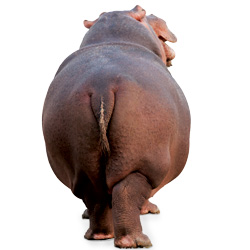Why Youve Hit A Weight-Loss Plateau & What To Do About It

I see people all the time who are rewarded by seeing that number on the scale drop. But then, for no identifiable reason, the scale doesn't budge — even though they're following a healthy, low-calorie diet and exercising regularly.
Has this ever happened to you?
First of all, don't get too discouraged! It's normal for weight loss to slow and stall, and this eventually happens to everyone who is trying to lose weight.
Although hitting a plateau is common, most people are surprised when it happens to them. When continued efforts quit working, think of it this way: You used to be carrying around a suitcase—all day, every day, in the form of that excess weight—and now you aren't carrying it anymore. You're expending a lot less energy just to get around. That's part of the reason your ongoing work is less fruitful as you lose weight.
What causes a weight-loss plateau?
The progression from weight loss to a weight-loss plateau follows a typical pattern. During the first few weeks of losing weight, a rapid drop is normal. In part, this is because when calories from food are reduced, the body gets energy by releasing its stores of glycogen, a type of carbohydrate found in the muscles and liver. Glycogen holds on to water, so when glycogen is burned for energy, it also releases water, resulting in substantial weight loss that's mostly water.
A plateau occurs because you burn fewer calories in your daily activities as you get smaller. Your weight-loss efforts result in a new equilibrium with your now smaller body.
At this new equilibrium, calories eaten equals equals expended. This means that to lose more weight, you need to increase activity or decrease the calories you eat. Using the same approach that worked initially may maintain your weight loss, but it won't lead to more weight loss.
When you've hit a plateau, you may have lost all of the weight you will, given the amount of high-antioxidant, low-fat foods you are eating and the time you spend exercising. At this point, you need to ask yourself if you're satisfied with your current weight or if you want to lose more, in which case you'll need to adjust the content of your diet further.
If you're committed to losing more weight, try these tips for getting past the plateau:
- Reassess your habits. Look back at what you've been eating and consider adding a green smoothie to breakfast or an additional cup of veggies to your pasta at dinner. Snacking on unhealthy choices has undone many a diet, too.
- Increase the vegetables in your diet. Veggies are nutrient dense, meaning they're low in calories and packed with antioxidants and fiber. Simply put, vegetables are magic—and they'll help you reach your goals.
- Be sure you're getting enough beans. You can't beat a bean for the perfect combination of fiber, carbohydrates, and complete proteins! In fact, Tess swears by beans—eating them daily helped her lose 50 lbs. 13 years ago.
- Pack more activity into your day. Think outside the gym. Increase your general physical activity throughout the day by walking more and using your car less, or try doing more yard work or vigorous spring cleaning. Plan a long hike on a Saturday morning or do an extra yoga class.
- Meditate on your weight loss goals for just five minutes a day. Breathe in peace and breathe out anxiety. Remember that you're in control and you can achieve anything you'd like. Bring your goals into clearer view by simply focusing your thoughts and eliminating distractions. Picture yourself with huge, beautiful wings, unfurling and spreading out past your fingertips. With a deep breath, imagine taking flight off your plateau to a new and more amazing you.
And here's something you may not have ever thought of—a plateau is actually very good news! You've lost enough weight that you need to change things further to be more successful. If you've improved your diet and increased your exercise, you've already improved your health even without further weight loss. For those who are overweight or obese, even modest weight loss improves chronic health conditions related to being overweight.
You've already done better than you think!
Photo Credit: Shutterstock.com
-
Healthy Foods That Make You Happy
We all experience bad days that have us feeling down and low, l
-
The Downside to Counting Calories
For the average dieter,
-
7 Super Supplements that Help Reduce Cellulite
As children we were always told that we
-
Algonquin Personal Trainers Point Out Weight Loss Mistakes
People struggle with weight loss everyday and have struggled for many,
-
Sustained Weight Loss With Linoleic Acid
Many of us have had the experience of having early success with a diet
-
Diet Reviews: Why Is It Essential to Read Whats on the market?
When planning to begin a diet plan, many issues should be taken int
- DON'T MISS
- Everything You Wanted To Know Regarding Fat Reduction
- Quick Weight Loss Tips - Fast Weight Loss Solutions for People On the Go
- Lose Weight With Chromium Supplements
- Why Having A Weight Loss Plan Make Sense
- Diet Tips for HCG Dieters
- Weight Loss Advice What Makes A GREAT Personal Trainer
- Ideas And Tips on How to Speed Up Weight Loss
- Abdominal Exercises for Men and Women
- Extra Pounds Won’t Go Away? Try These Weight Loss Tips!
- Can Overweight Kids Develop Asthma?




